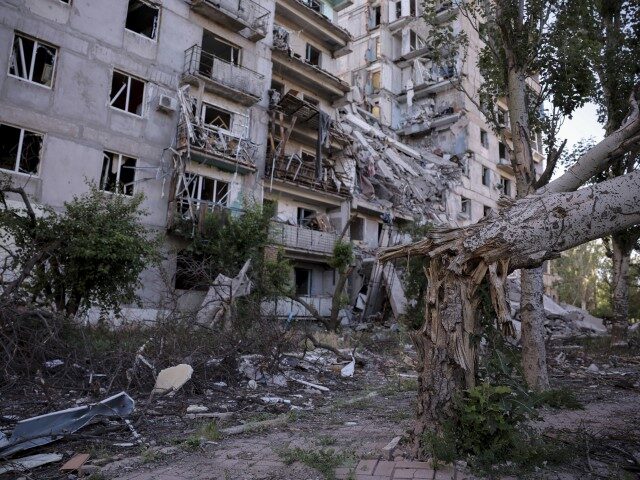The Assembly of the Cuban Resistance (ARC) called this week for the European Union to cease its financial support of Cuba’s communist regime, denouncing the regime’s support of Russia in its ongoing invasion of Ukraine.
Since 1988, the European Union has maintained direct relations with Cuba that have resulted in the communist regime receiving hundreds of millions of euros in financing, ARC leaders noted at an event in Lithuania.
The EU’s multi-million-euro financial assistance deal with Cuba appears to have had no effect on the improvement of living conditions of Cuba’s citizens, who are forced to live in conditions of extreme poverty and other inhumane conditions as a direct result of more than six decades of communist mismanagement.
Cubans are currently experiencing the collapse of their population and the worst migrant crisis in its history. The communist regime’s politics have forced Cubans to endure severe shortages of food, medicine, and other basic supplies in addition to constant power blackouts of up to 12 hours at a time, severe water shortages, rampant inflation, and a derelict healthcare infrastructure.
“We are in Spain raising our voices for a free Cuba and to demand the end of the European Community’s subsidy to the Castro dictatorship,” ARC secretary-general Orlando Gutiérrez Boronat told the independent outlet ADN Cuba on Tuesday.
Gutiérrez Boronat; Julián Obiglio, the president of the Union of Latin American Parties; former Cuban political prisoner Jorge Luis García “Antúnez,” and other activists held an encounter on Monday with Spanish senators in which they expressed their calls to end the European financing of the Castro regime. The Cuban activists also urged effective support from Western democracies to Cuban opposition and resistance.
“It is inconceivable that with more than a thousand political prisoners in Cuba, among them my brother Loreto Hernandez, that Europe continues to finance the dictatorship and repression on the island,” Garcia said.
The founder of the outlet ADN America, Gelet Martinez Fragela, emphasized that “every euro that the Cuban regime receives from the European community is an open letter for the continuation of repression in Cuba and an economic incentive for the Castro elite not to leave power.”
“The Cuban regime is a satellite of Russia and Iran that seeks to export its influence with the objective of undermining Western democracies,” Martinez Fragela said. “The destruction it has caused in Venezuela, along with its support for Putin in the illegal invasion of Ukraine, is evident, which makes it incomprehensible that international cooperation, especially Europe, continues to subsidize its own enemy.”
Spanish Senator Juan José Matarí shared a picture of the meeting on his Instagram account, stressing, “Our commitment is one of active and effective solidarity to achieve progress in the transition from dictatorship to democracy in Cuba.”
The Cuban activists also denounced the Castro regime’s continued support of Russia’s ongoing invasion of Ukraine through an exposition held in the Lithuanian Seimas Parliament in Vilnius titled “Putin’s Cuban Army.”
In a series of posters, the exposition presents evidence of actions the Castro regime has taken to provide support to Russia in its war against Ukraine, such as sending Cuban men to fight for Russia.
The exhibition also denounced other alarming actions the rogue communist regime has taken part in, such as the continued expansion of Chinese spy bases on Cuban soil.
“It shows the irony that European taxpayers are sustaining the funds given to the communist regime in Cuba that sends its troops to murder Europeans,” ARC said to the outlet Cubanet in a statement.
“The exhibition is designed to demonstrate to the press and parliamentarians the reality of the Cuban intervention and its alliance with Russia, which has been ignored by many European leaders,” the statement continued.
According to ARC, the exposition is sponsored by Lithuanian lawmaker Emanuel Zingeris, who described Cuba as a puppet of Russia since the times of the Soviet Union.
“The terrible actions of the Havana regime against Cuban democrats in recent years, in particular the sending of thousands of Cubans into the ranks of Putin’s armed forces in the war of occupation to kill Ukrainians, eliminates the possibility of cooperation of the European Union with Cuba in all areas,” Zingeris said.
In December 2016 the European Union signed a Political Dialogue and Cooperation Agreement (PDCA) with Cuba that has seen the European Union provide the Castro regime with 115 million euros in financing of some 80 projects allegedly in the areas of “sustainable agriculture and food security, renewable energy and climate change, and modernisation of the economy.”
The European Union also has an active 2021-2027 Multiannual Indicative Programme (MIP) with Cuba framed on the basis of the PDCA to finance Cuba’s “ecological transition” and “modernization of the economy.” MIP financing between 2021-2024 amounted to 91 million euros. In August, the EU granted 500,000 euros in financial aid to the Castro regime, allegedly to support access to health in Cuba for “children, adolescents and women of reproductive age.”
The EU’s agreement with Cuba and its financing of the Castro regime has been subject to fierce criticism over the past years — including criticism from EU member states such as Sweden, whose lawmakers have called for a review of the agreement in light of the Castro regime’s continued human rights violations committed against its own people.
Throughout its long history of human rights abuses the Cuban communist regime has repeatedly violated Article 1 of the PDCA, which calls for respect of democratic principles, human rights, and the rule of law as an “essential element” of the agreement. At press time, Lithuania is the only EU member state that has not ratified the PDCA.

COMMENTS
Please let us know if you're having issues with commenting.